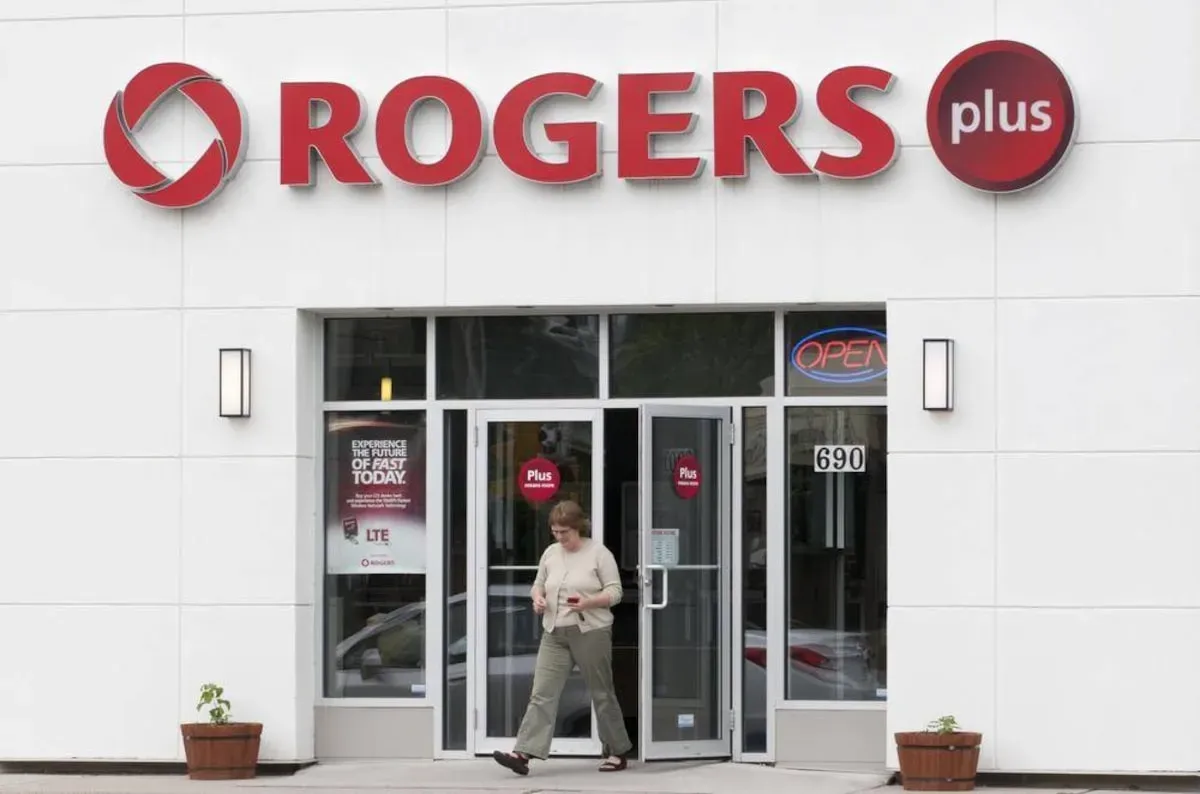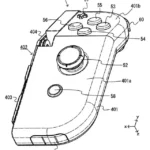Rogers false advertising allegations have recently stirred significant controversy as the company faces scrutiny from the Competition Bureau. Accusations claim that Rogers has misled consumers about their wireless data plans in Canada, particularly regarding the nature of their semi-unlimited offerings. In response, Rogers contends that they are being unfairly targeted, highlighting that many similar advertising practices are common across the industry. The company argues that customers are well-informed about how modern wireless data plans function, including the throttled network speeds that apply after certain usage limits. This ongoing legal battle raises important questions about transparency and consumer protection in the highly competitive telecommunications market.
The recent allegations against Rogers, centered on claims of misleading advertising, have captured the attention of consumers and regulatory bodies alike. These accusations, spearheaded by the Competition Bureau, suggest that the major telecom provider has not been completely transparent regarding its wireless data offerings. As Rogers defends its practices, it emphasizes that the concept of semi-unlimited data plans is widely adopted within the Canadian market, echoing similar policies from other carriers. Furthermore, the discussions surrounding throttled network speeds and the actual data usage of customers serve to highlight the complexities of modern mobile plans. This situation underscores the vital need for clarity and fairness in advertising within the telecommunications sector.
Rogers’ Response to Competition Bureau’s Allegations
In light of the recent lawsuit regarding alleged false advertising, Rogers has firmly asserted that it is being disproportionately targeted by the Competition Bureau. The telecommunications giant argues that similar advertising practices are prevalent among other carriers in the industry. Rogers emphasizes that their advertising strategy includes clear disclosures available both online and in-store, which they believe adequately informs customers about the nature of their wireless data plans. This response aims to highlight that the accusations may stem from a selective interpretation of their promotional materials.
Rogers also points out that the Competition Bureau’s claims overlook the general consensus among consumers regarding the functioning of modern data plans. They contend that the understanding of ‘unlimited’ data is widely recognized, and the notion of throttled speeds is not a new concept. By focusing on Rogers alone, the Bureau seems to disregard the industry’s collective approach to advertising, which has allowed for the development of semi-unlimited plans that have become a norm in Canada.
Understanding Semi-Unlimited Plans in Canada
The introduction of semi-unlimited plans by Rogers in 2019 marked a significant shift in the Canadian telecommunications landscape. These plans, which offer a combination of high data limits and throttled speeds, were designed to alleviate the financial burden of overage fees that many customers faced under traditional unlimited plans. Following Rogers’ lead, major competitors like Bell and Telus quickly followed suit, indicating a broader industry trend towards more transparent and manageable wireless data options.
As consumer awareness grows, semi-unlimited plans have gained traction, allowing users to enjoy extensive data usage without the fear of exorbitant charges. This evolution reflects the changing needs of Canadian consumers who demand more flexibility and clarity in their wireless data offerings. Even as Rogers faces scrutiny, the facts show that most subscribers are well within their data limits, with throttled speeds applying only in rare cases, thus reinforcing the viability of these plans in the market.
The Impact of Throttled Network Speeds on Consumers
Throttled network speeds, although often viewed negatively, play a crucial role in the sustainability of wireless data plans. Rogers has indicated that their throttling practices align with those of other major Canadian carriers, including Bell and Telus. This industry-wide approach ensures that network resources are managed effectively and that all consumers have access to reliable service during peak usage times. By implementing throttling, Rogers aims to maintain a balance between providing robust service and managing network capacity.
For many users, the experience of throttled speeds is not as detrimental as portrayed. Most subscribers rarely reach the data limits set by their plans, meaning that the impact of throttling is often minimal. This reality suggests that Rogers’ semi-unlimited plans not only meet consumer needs but also contribute to a more equitable distribution of network resources. As the industry continues to evolve, understanding the implications of these practices will be essential for consumers seeking the best wireless data plans in Canada.
Rogers’ Advertising Practices Under Scrutiny
Rogers’ advertising practices have come under increased scrutiny following the allegations from the Competition Bureau. The company’s marketing strategies, which highlight their semi-unlimited plans, are now being examined to determine whether they mislead consumers about the nature of their data offerings. While Rogers argues that their advertisements are clear and transparent, the Bureau contends that there may be a disconnect between consumer understanding and the actual service provided.
This ongoing investigation raises important questions about the clarity and effectiveness of telecommunications advertising in Canada. As more consumers rely on wireless data for everyday activities, it becomes crucial for companies like Rogers to ensure their advertising accurately reflects the terms of service. The outcome of these allegations could not only impact Rogers but also set a precedent for advertising standards across the entire telecommunications industry.
The Future of Wireless Data Plans in Canada
The future of wireless data plans in Canada appears to be leaning towards more consumer-friendly options as companies respond to market demands and regulatory scrutiny. With the Competition Bureau actively investigating practices like those of Rogers, there is potential for significant changes in how data plans are marketed and structured. This evolution may encourage greater transparency and competition among carriers, ultimately benefiting consumers.
As the industry shifts, consumers can expect to see more innovations in wireless offerings, including adjustments to throttled speeds and data limits. Companies may be compelled to provide clearer information about their services, ensuring that customers are fully aware of what their plans entail. This could lead to a more informed customer base, capable of making better choices regarding their wireless service providers.
Consumer Rights and Telecommunications
The allegations against Rogers highlight the importance of consumer rights in the telecommunications sector. As customers navigate the complexities of wireless data plans, understanding their rights and the services they subscribe to becomes crucial. The Competition Bureau’s involvement indicates a commitment to protecting consumers from potentially misleading advertising practices, ensuring that they receive fair treatment in the marketplace.
Moreover, as regulatory bodies like the Competition Bureau take a closer look at the practices of major carriers, consumers can expect to receive more robust protections. This scrutiny not only fosters accountability among providers but also empowers customers to demand clarity and fairness from their service agreements. The ongoing dialogue between consumers, companies, and regulators will be essential in shaping a more equitable telecommunications environment.
The Role of Competition in the Telecommunications Market
Competition plays a pivotal role in shaping the telecommunications landscape in Canada. With companies like Rogers, Bell, and Telus competing for market share, the drive for better services and pricing becomes a central focus. This competitive environment encourages innovation and leads to the introduction of new data plans that cater to diverse consumer needs. As Rogers faces allegations from the Competition Bureau, the implications of these claims could influence the strategies of competing carriers as well.
The emphasis on competition also drives companies to differentiate their offerings, whether through pricing models, data allowances, or customer service experiences. For consumers, this means more choices and the ability to select plans that align with their usage patterns. The outcome of the current situation with Rogers may spur further competition among carriers, leading to enhanced services and better pricing for Canadian customers.
Navigating Wireless Data Plans: Tips for Consumers
As the landscape of wireless data plans continues to evolve, it is essential for consumers to navigate their options wisely. Understanding the specifics of each plan, including data limits, throttling policies, and coverage areas, can significantly impact the overall customer experience. With allegations of false advertising swirling around major carriers like Rogers, consumers should take extra care to review fine print and seek clarification on terms that may be unclear.
Additionally, staying informed about industry trends and regulatory changes can empower consumers to make better decisions regarding their wireless services. Engaging with consumer advocacy groups and utilizing online resources can provide valuable insights into the best practices for selecting a suitable plan. By being proactive, consumers can ensure they are not only getting the best deal but also enjoying the full benefits of the wireless services they choose.
The Importance of Clear Advertising in Telecom
Clear advertising is crucial in the telecommunications industry, especially amid ongoing scrutiny of practices like those at Rogers. As consumers seek transparency in their wireless data plans, the responsibility falls on carriers to ensure their marketing reflects the reality of their services. Misleading advertisements can lead to consumer frustration and mistrust, undermining the relationship between providers and their customers.
The Competition Bureau’s investigation into Rogers serves as a reminder of the importance of accountability in advertising. As the industry adapts to meet consumer expectations, clear communication will be paramount in fostering trust and loyalty. Companies must prioritize accurate representation of their services to build a sustainable business model in an increasingly competitive market.
Frequently Asked Questions
What are the Rogers false advertising allegations regarding wireless data plans in Canada?
The Rogers false advertising allegations stem from a lawsuit filed by the Competition Bureau, claiming that Rogers misrepresented its wireless data plans, particularly its semi-unlimited plans. The bureau argues that these plans are misleading, as they may lead customers to believe they have unlimited data when, in fact, their speeds may be throttled after reaching certain usage thresholds.
How has Rogers responded to the Competition Bureau’s false advertising allegations?
Rogers has stated that it is being unfairly targeted and claims that the Competition Bureau is overlooking the numerous disclosures made on its website and in stores. The company argues that its advertising is consistent with industry standards and that the lawsuit selectively interprets its marketing materials.
What are semi-unlimited plans offered by Rogers, and how do they relate to the false advertising allegations?
Rogers’ semi-unlimited plans allow customers to use data without incurring overage fees, but they come with the caveat that speeds may be throttled after reaching a certain data limit. The Competition Bureau’s allegations suggest that such plans may be falsely advertised as unlimited, which is a key point of contention in the ongoing legal battle.
Are throttled network speeds a common practice among Canadian wireless carriers like Rogers?
Yes, throttled network speeds are a common practice among major Canadian wireless carriers, including Rogers, Bell, and Telus. Rogers has noted that its throttling practices align with industry standards, meaning that customers may experience reduced speeds after exceeding specified data limits on their plans.
What impact might the Rogers false advertising allegations have on their wireless data plans?
The impact of the Rogers false advertising allegations could lead to increased scrutiny from regulators and potential changes in how the company markets its wireless data plans. If the Competition Bureau finds merit in the allegations, Rogers may be required to revise its advertising practices to ensure clearer communication about data limits and throttling.
How long have Rogers’ semi-unlimited plans been in effect, and what prompted the Competition Bureau’s investigation?
Rogers introduced its semi-unlimited plans in 2019, which were quickly adopted by other carriers in Canada. The Competition Bureau’s investigation, which began in late 2023, was prompted by growing concerns about the transparency and marketing practices surrounding these plans, culminating in the allegations filed against Rogers.
What should consumers know about Rogers’ advertising response to the false advertising allegations?
Consumers should be aware that Rogers maintains that its advertising is transparent and consistent with industry practices. The company emphasizes that it provides clear disclosures regarding its wireless data plans, aiming to clarify any misconceptions about throttled speeds and data limits associated with its semi-unlimited offerings.
| Key Point | Details |
|---|---|
| Lawsuit Filed | Rogers faced a lawsuit for alleged false advertising on December 23, 2024. |
| Rogers’ Response | Rogers claims it is being unfairly targeted and that the Bureau’s allegations are based on a selective view of its advertisements. |
| Industry Context | Rogers argues that the Bureau’s claims challenge the entire industry’s approach to unlimited data plans, which have been adopted by many carriers. |
| Data Plan Limits | Rogers states that data limits have increased, with few subscribers hitting their limits, and that throttling practices align with other carriers. |
| Semi-Unlimited Plan Introduction | The semi-unlimited plan was introduced by Rogers in 2019, influencing other carriers to adopt similar plans shortly thereafter. |
Summary
Rogers false advertising allegations have sparked significant discussions regarding the fairness of the Competition Bureau’s targeting of the company. In its defense, Rogers emphasizes that it is not alone in its marketing practices and that the complaints against them represent a broader industry issue. With an increase in data limits and a general customer understanding of data plans, Rogers argues that the lawsuit is misguided and based on selective interpretations of their advertising. This situation highlights the complexities surrounding marketing practices in the telecommunications sector and the ongoing evolution of data plans in Canada.








